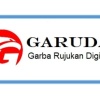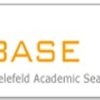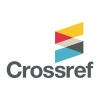KARAKTERISTIK SELF-EFFICACY GURU MATEMATIKA SMP DI KOTA SERANG
Abstract
Learning mathematics is inseparable from how mathematics is taught in educational institutions, but also the success of a teacher in teaching. This means that the teacher's role is very important to influence students' success in learning. In the learning process a teacher must have confidence (self-efficacy) in order to achieve learning goals. The teacher is a profession of a person who has the duty to educate, to teach, to guide, to assess and to evaluate students in the process of growth and development of students in order to achieve learning goals. Self-efficacy to the teacher is a teacher's self-confidence in his ability to organize and run learning programs so that the success of teaching assignments is specific to certain material contexts and can affect student performance. The purpose of this study was to describe the characteristics of the self-Efficacy of junior high school mathematics teachers in Serang City. This type of research is qualitative research. The subjects of the study were junior high school mathematics teachers in Serang City. Data collection techniques in this study used observation, interviews and documentation. The interview instrument was modified from the General Self-Efficacy (GSE) instrument which consisted of 10 question items. The data that has been obtained is then analyzed using the constant comparative method. The results showed that there were characteristics of the self-efficacy of mathematics teachers in Serang City which could be grouped into 2 groups is constructive groups and normative groups. Constructive groups are teachers who have high self-efficacy. While normative groups are teachers who have moderate self-efficacy.
Full Text:
PDFReferences
Adirestuty, F. (2017). Pengaruh Self-Efficacy Guru dan Kreativitas Guru Terhadap Motivasi Belajar Siswa dan Implikasinya Terhadap Prestasi Belajar Pada Mata Pelajaran Ekonomi. Jurnal Wahana Pendidikan, 4(1), 54-67.
Ahmad, A & Safaria, T. (2013). Effects of Self-Efficacy on Students Academic Performance. Journal of Educational, Health and Community Psychology. 2 (1). 22-29
Arifin, Z. (2014). Penelitian Pendidikan. 3. Bandung: PT. Remaja Rosdakarya
Bandura, A. (1977). Self-efficacy: Toward a Unifying Theory of Behavioral Change. Psychological Review. 84 (2): 191-215
Bandura, A. (1994). Self-efficacy. Dalam V. S. Ramachaudran (Ed.), Encyclopedia of human behavior (Vol. 4, pp. 71-81). New York: Academic Press. (Reprinted dalam H. Friedman [Ed.], Encyclopedia of mental health. San Diego: Academic Press, 1998)
Choiron, A., & Rifqi, A. (2015). Pengaruh Kompetensi Profesional Guru, Efikasi Diri, Dan Komunikasi Interpersonal Terhadap Kinerja Guru SMPN 1 Kerinci Kanan Kabupaten Siak. Jurnal Online Mahasiswa (JOM) Bidang Ilmu Ekonomi, 2(1), 1-15.
Dewi, V.R., Syamsuri, S. & Khaerunnisa, E. (2019). Karakteristik motivasi ekstrinsik dan intrinsik siswa SMP dalam belajar matematika. TIRTAMATH: Jurnal Penelitian dan Pengajaran Matematika , 1(2), 116-128
Gaffar, H. M. S. 2007. Guru Sebagai Profesi. Jurnal Administrasi Pendidikan. 5 (1), 1-13
Guskey, T. R., & Passaro, P. D. (1994). Teacher efficacy: A study of construct dimensions. American Educational Research Journal.31, 627-643.
Huang, C. (2016). Achievement goals and self-efficacy: A meta-analysis. Educational Research Review, 19, 119-137.
Kasiram. 1999. Kapita Selekta Pendidikan. IAIN Malang: Biro Ilmiyah.
KBBI. 2019. Kamus Besar Bahasa Indonesia (KBBI). [Online] Tersedia di https://kbbi.web.id/konstruktif diakses pada tanggal 11 Juni 2019 pukul 16.05.
______. 2019. Kamus Besar Bahasa Indonesia (KBBI). [Online] Tersedia di https://kbbi.web.id/normatif diakses pada tanggal 11 Juni 2019 pukul 20.15.
Koswara, D.D. dan Halimah. (2008). Bagaimana Menjadi Guru Kreatif? Bandung: PT Pribumi Mekar.
Kurjono, K. (2015). Pengaruh Interaksi Sosial dan Efikasi Diri Terhadap Kecerdasan Emosi. Pengembangan Pendidikan Akuntansi dan Keuangan yang Berkelanjutan. Bandung. Oktober 2015.
Rahmadini, A. P. (2011). Studi Deskriptif Mengenai Self Efficacy Terhadap Pekerjaan Pada Pegawai Staf Bidang Statistik Sosial Di Badan Pusat Statistik Provinsi Jawa Barat. Program Sarjana Psikologi. Bandung: Universitas Islam Bandung
Republik Indonesia. 2005. Undang-undang No. 14 Tahun 2005 tentang Guru dan Dosen. Lembaran Negara RI Tahun 2017 No. 157. Sekretariat Negara. Jakarta.
Schwarzer, R. & Hallum, S. (2008). Perceived Teacher Self-Efficacy as a Predictor of Job Stress and Burnout: Mediation Analyses. International Association of Applied Psychology. 57, 152–171
Schwarzer, R., Schmitz, G. S., & Daytner, G. T. (1999). The Teacher Self-Efficacy scale. Tersedia pada http://userpage.fu-berlin.de/gesund/skalen/Language_Selection/Turkish/Teacher_Self-Efficacy/teacher_self-efficacy.htm. Diakses pada tanggal 4 Desember 2018 pukul 13.47
Tschannen-Moran, M., & Hoy, A. W. (2001). Teacher efficacy: Capturing an elusive construct. Teaching and teacher education, 17(7), 783-805.
Tschannen-Moran, M., Hoy, A. W., & Hoy, W. K. (1998). Teacher efficacy: Its meaning and measure. Review of educational research, 68(2), 202-248.
U.M. Shabir. 2015. Kedudukan Guru Sebagai Pendidik. Jurnal Pendidikan Dasar Islam. 2 (2), 221-232
Zimmerman, B. J. (2000). Self-efficacy: An essential motive to learn. Contemporary edmucational psychology, 25(1), 82-91.
DOI: http://dx.doi.org/10.48181/tirtamath.v2i1.8418
Refbacks
- There are currently no refbacks.
Copyright (c) 2020 TIRTAMATH: Jurnal Penelitian dan Pengajaran Matematika
Ciptaan disebarluaskan di bawah Lisensi Creative Commons Atribusi 4.0 Internasional .
Tirtamath: Jurnal Penelitian dan Pengajaran Matematika. Jurnal ini diterbitkan oleh Program Studi Magister Pendidikan Matematika Universitas Sultan Ageng Tirtayasa (cetak) dan Jurnal Untirta (eprint).
Alamat Penerbit: Program Studi Magister Pendidikan Matematika Kampus FKIP Untirta Jl. Ciwaru Raya, Cipare, Kec. Serang, Kota Serang, Banten 42117, Email: [email protected] |Klik untuk mengakses: Tirtamath: Jurnal Penelitian dan Pengajaran Matematika






